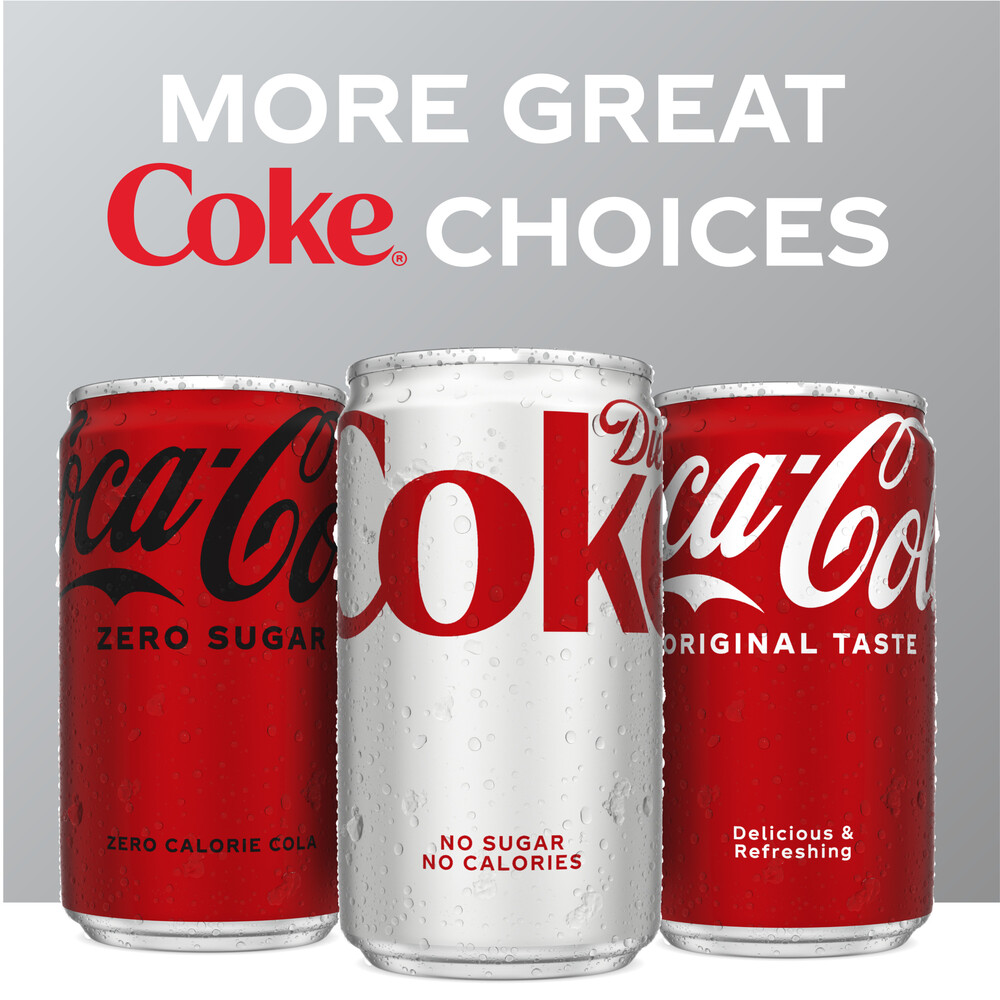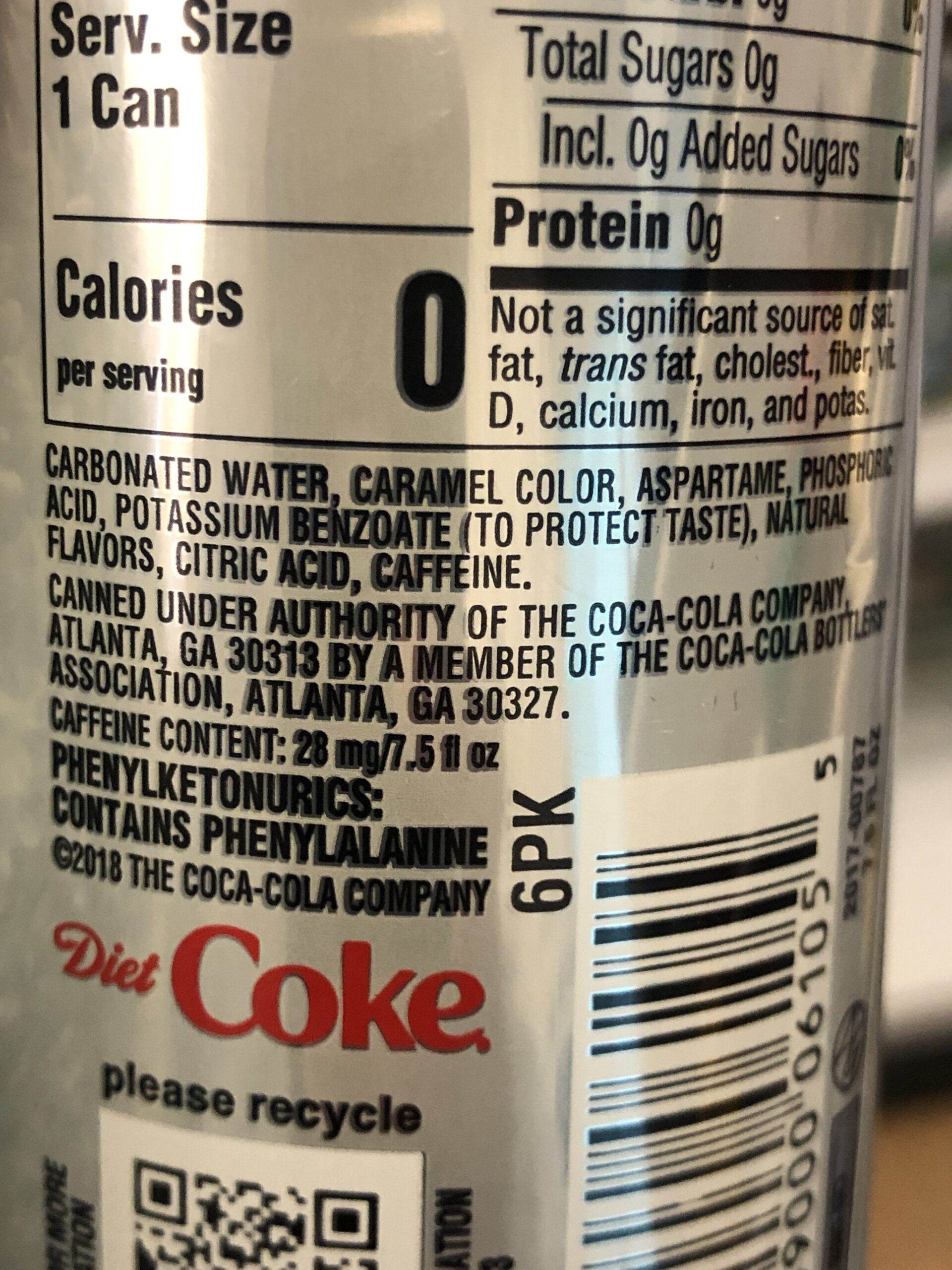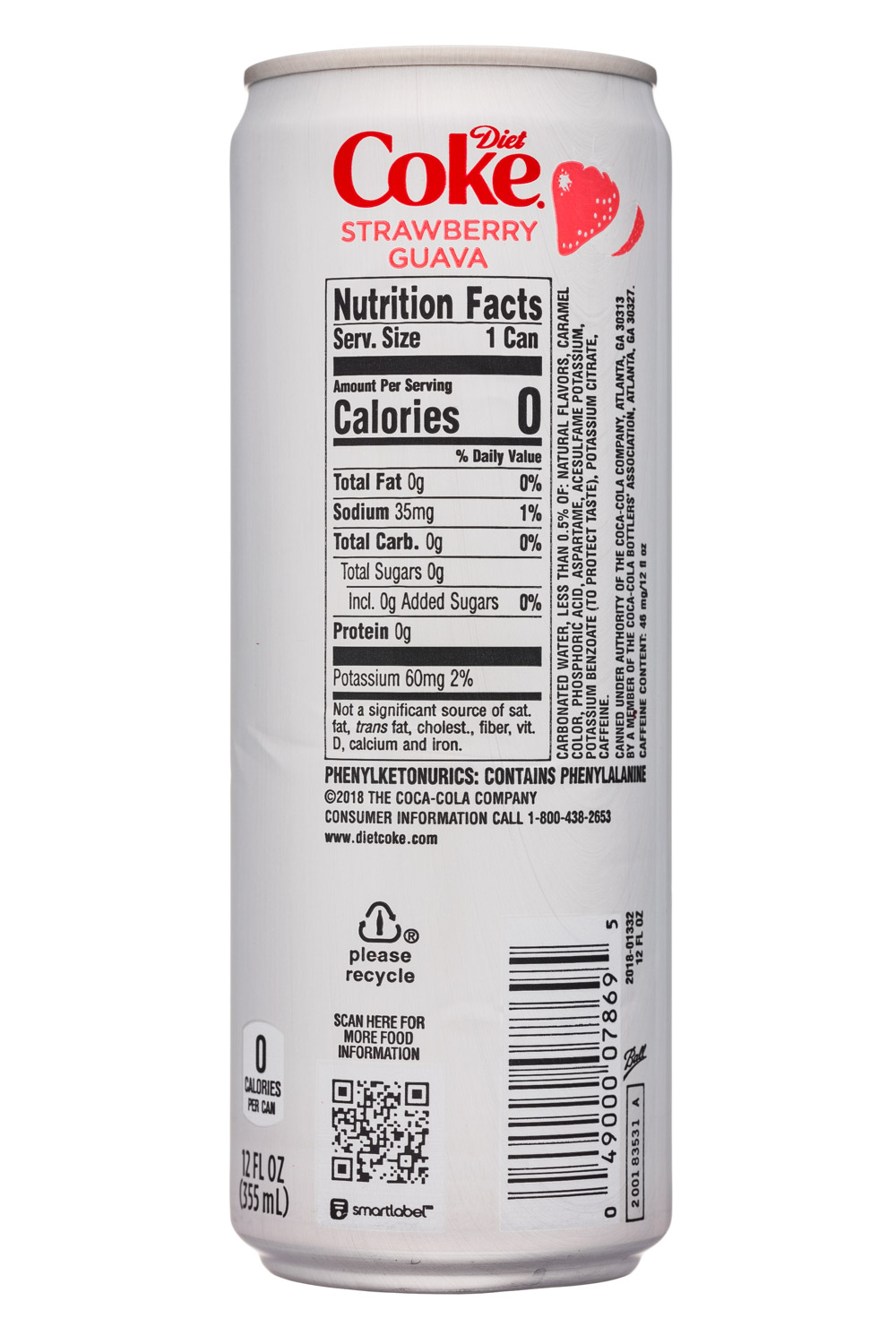Have you ever looked at the nutrition label on a can of Diet Coke and wondered what all those ingredients really mean? If you’re like many people, you might find yourself questioning how a beverage that tastes so sweet can have zero calories. Let’s unravel the mystery behind Diet Coke’s nutrition label and what it means for your health.

This image is property of contenthandler-raleys.fieldera.com.
Understanding Nutrition Labels
Nutrition labels are essential tools that give you insights into the food and beverages you consume. They help you make informed decisions about what you’re putting into your body. When it comes to sodas like Diet Coke, the label reveals the caloric and nutritional considerations you should be aware of.
What to Look for on the Nutrition Label
Pay attention to several key components of any nutrition label. They include serving size, calories, and a breakdown of nutrients such as sugars, sodium, and caffeine. Understanding these elements can enlighten you about what you’re drinking.
Serving Size
The serving size specifies how much of the product is considered one serving. For Diet Coke, the standard serving is 12 ounces. It’s essential to keep this in mind, as many people may consume multiple servings in one sitting, potentially altering the overall intake of ingredients.
Calories
One of the standout features of Diet Coke is its calorie content—or lack thereof. A 12-ounce can of Diet Coke contains zero calories. It’s important to understand what this means for you. While you won’t be taking in any calories, the absence of sugar can lead to its own set of consequences on your body and cravings.
What’s in Diet Coke?
Now that you’ve got the basics down, let’s take a closer look at the specific ingredients found in Diet Coke. Understanding these will help you appreciate the concoction that creates this popular beverage.
Carbonated Water
The primary ingredient of Diet Coke is carbonated water. It’s what gives you that refreshing fizz when you take a sip. Carbonated water is simply water that has been infused with carbon dioxide gas under pressure, creating the bubbles you adore. While it sounds simple, this ingredient sets the stage for the overall flavor experience.
Artificial Sweeteners
Perhaps the most talked-about component in Diet Coke is its use of artificial sweeteners. Instead of sugar, Diet Coke relies on the sweetening power of aspartame. This ingredient is significantly sweeter than sugar, which allows for that satisfying sweetness without adding calories.
The Debate Around Aspartame
People often have differing opinions on artificial sweeteners. Studies explore whether they are completely safe or if they may have long-term effects on health. If you have concerns, it’s wise to review current research and consult with a healthcare professional.
Caffeine Content
If you love that little kick from your beverages, you’ll be happy to know that Diet Coke contains caffeine. A standard 12-ounce can has about 46 mg of caffeine, making it a lighter alternative compared to coffee or energy drinks. For many, caffeine provides a burst of energy and can help neurophysiological functions, but moderation is key.
Flavoring Agents
So, what gives Diet Coke its unique taste? Along with the artificial sweeteners, flavoring agents play a crucial role. This is often a blend of natural and artificial flavors designed to mimic the taste experience of traditional cola. The specific recipe is a closely-guarded secret, but the effect is clear—it’s what many of you find appealing about the drink.
Phosphoric Acid
Phosphoric acid is another ingredient that deserves a mention. It provides a tangy flavor and helps to stabilize the drink. While it can sound intimidating, in moderation, it’s considered safe for consumption. However, there are ongoing discussions regarding its potential effects on bone health, so it’s wise to consume it mindfully.
Potential Health Implications of Diet Coke
When evaluating any beverage, especially one as popular as Diet Coke, it’s essential to understand the health implications. Many individuals have different experiences, and while you might enjoy it guilt-free, there are some points to consider.
Weight Management
Some people choose Diet Coke as a calorie-free alternative to sugary sodas in hopes of managing their weight. The concept is simple: get the taste without the calories. However, some research suggests that artificial sweeteners might increase cravings or even lead to weight gain in certain individuals. It’s worth considering how your body responds to these sweeteners and adjusting your choices accordingly.
Dental Health
Another angle to consider is dental health. While Diet Coke doesn’t have the high sugar content found in regular sodas, it is still acidic. The acidity can erode enamel over time, potentially leading to cavities and sensitivity. To protect your smile, enjoy your Diet Coke in moderation, rinse with water afterward, or limit consumption to avoid prolonged exposure.
Bone Health
Phosphoric acid, which we talked about earlier, has been linked to potential negative effects on bone health in some studies. If you’re particularly concerned about your bone health, especially if you’re at a higher risk for osteoporosis, you may want to limit your intake of phosphoric acid in general and monitor your overall diet closely.
Hydration
While Diet Coke is delicious and may quench your thirst, it’s essential to note that it shouldn’t replace water. Staying well-hydrated is crucial for overall health. If you find yourself reaching for Diet Coke frequently, try balancing it with plenty of water throughout the day.
The Psychological Aspect of Diet Coke
Soda isn’t purely physical; there’s a psychological component behind your consumption choices, too. Have you ever thought about the reasons behind your love for Diet Coke?
The Flavor Experience
Many enjoy the sweet, crisp taste of Diet Coke. It’s often associated with rewarding moments, like enjoying a meal or hanging out with friends. The flavor itself transports you to those moments, making the experience more enjoyable. This emotional connection plays a considerable role in why you might reach for it time and again.
Cravings and Satisfaction
Interestingly, some studies suggest that consuming diet sodas may reinforce a craving for sweetness, leading to an increased desire for sugary foods. For some individuals, this creates an endless cycle where the satisfaction derived from Diet Coke becomes intertwined with cravings for other sweets. If you notice that you’re relying on Diet Coke to satisfy those sweet urges, it might be time to reevaluate your habits or explore other beverages that better align with your health goals.

This image is property of images.openfoodfacts.org.
Alternatives to Diet Coke
If you’re exploring options beyond Diet Coke, there are plenty of alternatives tailored to suit different taste preferences and health goals.
Sparkling Water
If you enjoy the fizz but want to avoid artificial sweeteners and sugars, sparkling water is a refreshing option. Many brands create flavored sparkling waters with natural flavors instead of sugary additives, giving you a bubbly experience without the calories or guilt.
Herbal Teas
Herbal teas are another great choice. Not only do they add hydration, but they also come with various health benefits depending on the type you choose. You can enjoy them hot or iced, and many have naturally sweet flavors that may satisfy your cravings.
Lightly Sweetened Beverages
Many brands now offer lightly sweetened drinks that use natural sweeteners, offering a pleasant flavor without the drawbacks of traditional sodas. These often contain fewer calories and might be less likely to contribute to cravings.
Making Informed Choices
As tempting as Diet Coke may be, making informed choices about your beverage consumption is key. If you choose to indulge in it, remember balance and moderation are essential.
Reading Labels
Knowing how to read labels will empower you as a consumer. Familiarize yourself with the ingredients and nutritional information, not just for Diet Coke but for all beverages you consume. This knowledge allows you to make choices aligned with your health goals.
Consulting Health Professionals
If you have specific health concerns, consider consulting a healthcare professional or a registered dietitian. They can provide tailored guidance based on your unique needs, helping you strike a balance with your favorite beverages while still meeting your health objectives.

This image is property of d2iiahg0ip5afn.cloudfront.net.
Conclusion
Next time you pick up a can of Diet Coke, take a moment to think about what’s in it and how it fits into your overall lifestyle. Understanding its nutrition label enables you to enjoy it in a mindful way, ensuring that your relationship with this popular beverage remains positive. Whether you’re sipping the fizzy goodness as an occasional treat or incorporating it into your daily routine, you have the power to make decisions that align with your health and happiness.